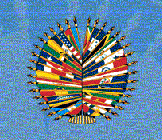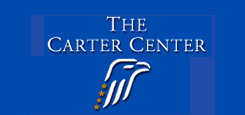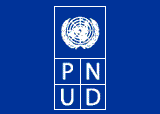The Washington Post
Rescuing Venezuela From the Brink
By Michael Shifter
Tuesday, November 19, 2002; Page A25
Venezuela's political crisis, already the most volatile in the
hemisphere, grows deeper by the day as protests mount and opposing
forces battle for control of the capital's police force. The
polarization between the government of Hugo Chavez and opposition
elements has brought the country to the edge of paralysis, chaos and,
conceivably, civil war.
It is essential, for Venezuela and other countries in the region,
including the United States, to prevent such a dire scenario. Indeed,
at a time when war threatens in the Middle East, what is happening
within the world's fourth-largest oil producer is a matter of utmost
international concern.
Chavez and his political opposition are deadlocked. The polarization
is not only political but also social. The opposition, representing
the middle class and almost all civic organizations -- labor unions,
the church and business associations -- sees Chavez as an
authoritarian extremist and wants him out of power as soon as possible.
Chavez, who retains the support of about 25 percent of Venezuelans,
most of them among the country's poor, refuses to relinquish power.
Because both sides now favor a constitutional solution, the debate has
centered on whether agreement can be reached on a referendum regarding
Chavez's continuance in power. The opposition is pressing for an early,
nonbinding "consultative" referendum, believing that if it wins,
Chavez will be forced to resign. Chavez has argued that to be
constitutional, a referendum must be held halfway through his term, in
August 2003. For the opposition, August seems an eternity away.
Opponents are convinced that Chavez would use the delay to consolidate
his dictatorial powers, and they have no confidence that he would
abide even then by such a vote. The longer this deadlock continues,
the more inflamed it becomes. Recent confrontations illustrate the
fact that the violence could escalate and easily get out of control.
The international community has not moved much further than to call
for reconciliation and dialogue. The United States, after being burned
by its clumsy response to a botched coup attempt in Venezuela last
April, has urged compromise. Cesar Gaviria, the secretary general of
the Organization of American States (OAS), has recently undertaken a
serious effort to broker just such a solution. Gaviria is now the only
channel of communication between the two sides and represents the best
bet for a peaceful outcome.
Yet however skilled and determined he is, Gaviria may have trouble
succeeding without help. A solution rests not so much on the outlines
of a formula as on convincing each side that failure to compromise
would be seriously deleterious to its interests. Gaviria's capacity to
succeed in such a critical situation, in other words, rests on both
sides understanding that he represents not just himself but the power
and suasion of the entire hemisphere. In keeping with the Inter-American
Democratic Charter, unanimously approved by all of the hemisphere's
elected governments last year, a vigorous response to Venezuela's
explosive conditions is more than justified.
This is the moment for member governments of the OAS to ratchet up the
pressure on both sides to strike an agreement. If they do not make it
clear -- through public statements and more subtle diplomatic
pressures -- that Gaviria represents the member governments and that
Chavez and the opposition have to compromise on a reasonable plan,
Gaviria could well be left out on a limb.
While other Latin American governments -- Brazil is especially
influential -- must deal with the Venezuelan situation with greater
urgency than they have so far, the role of the United States is vital.
The United States needs to catalyze and mobilize the support of other
governments and exercise its weight to create conditions for a
democratic solution to the crisis. After the April embarrassment, it
has been loath to get more involved and has hoped that somehow things
would work themselves out.
That is wishful thinking. If the United States and other nations in
the region do not act more assertively and constructively, then
Venezuela could continue moving toward confrontation or Chavez could
consolidate a more authoritarian regime. Either scenario would be
disastrous.
The writer is vice president for policy at the Inter-American Dialogue
and teaches Latin American politics at Georgetown University's School
of Foreign Service.
© 2002 The Washington Post Company
http://www.washingtonpost.com/wp-dyn/articles/A7804-2002Nov18.html
RESCATANDO A VENEZUELA DEL BORDE
La crisis política venezolana, la más volátil del hemisferio, se
ahonda día a día, a medida que se amontonan las protestas y las
fuerzas de oposición batallan por el control de la policía de la
capital. La polarización entre el Gobierno de Hugo Chávez y elementos
de la oposición ha conducido al país al borde de la parálisis, del
caos y concebiblemente de la guerra civil.
Es esencial para Venezuela y otros países de la región, incluido los
Estados Unidos, prevenir este escenario terrible. En realidad, en
momentos en que la guerra amenaza al medio oriente, lo que está
ocurriendo en el cuarto productor más grande de petróleo del mundo, es
un asunto que precisa la más alta preocupación internacional.
Chávez y su oposición política están en un punto muerto. La
polarización no es sólo política sino que también social. La
oposición, representada por la clase media y casi todas las
organizaciones civiles, sindicatos, iglesia y asociaciones
empresariales, ve a Chávez como un extremista autoritario y desea que
abandone el poder cuanto antes. Chávez, que mantiene un apoyo de
alrededor del 25% de los venezolanos, la mayoría de ellos de los
sectores más empobrecidos, se niega a entregar el poder.
Como ambos lados favorecen ahora una solución constitucional, el
debate se ha centrado en si puede lograrse un acuerdo respecto a un
referéndum para la continuidad de Chávez en el poder. La oposición
presiona para adelantar un referéndum consultivo --que no es
vinculante-- creyendo que si gana, Chávez se verá forzado a renunciar.
Chávez argumenta que el referéndum, para ser constitucional, debe
celebrarse a mitad de su período, en agosto de 2003. Sin embargo, para
la oposición agosto parece ser una eternidad. Los oponentes están
convencidos que Chávez usará el tiempo para consolidar sus poderes
dictatoriales y no tienen ninguna confianza en que entonces se
someterá al veredicto de los votos. Mientras más continúe el punto
muerto más explosiva se torna la situación. Las recientes
confrontaciones ilustran el hecho que la violencia podría escalarse y
fácilmente tornarse en fuera de control.
La comunidad internacional no se ha movido más allá de hacer llamados
a la reconciliación y al diálogo. Los Estados Unidos, luego de
quemarse con una torpe respuesta al chapucero atentado de golpe de
estado en Venezuela en abril pasado, ha urgido un compromiso. César
Gaviria, el Secretario General de la Organización de los Estados
Americanos OEA, recientemente ha realizado un serio esfuerzo para
agenciar tal solución. Gaviria es ahora el único canal de comunicación
entre ambos lados y representa la mejor chance para una solución
pacífica.
Sin embargo, sin importar lo determinado y hábil que sea Gaviria, si
no se le ayuda, podría encontrar problemas insalvables para lograr una
solución. La solución no recae tanto en el bosquejo de una fórmula
sino que en convencer a cada uno de los lados que no ceder para
alcanzar un compromiso es más perjudicial para sus intereses. Dicho de
otro modo, la capacidad de Gaviria para alcanzar el éxito en situación
tan crítica, está en que ambos lados entiendan que más que
representarse a sí mismo, el Secretario General representa el poder y
persuasión de todo el hemisferio. Para que mantenga su fuerza la Carta
Democrática Interamericana, que fue aprobada el año pasado en forma
unánime por todos los gobiernos electos del hemisferio, una vigorosa
respuesta a las explosivas condiciones de Venezuela está más que
justificada.
Este es el momento para que los Estados miembros de la OEA suban la
presión que aplican a ambos lados para que se logre un acuerdo. Si no
se deja muy en claro --través de declaraciones públicas y más presión
diplomática-- que Gaviria representa a los gobiernos de los Estados
miembros y que Chávez y la oposición se deben comprometer en un plan
razonable, Gaviria podría muy bien quedar en la estacada.
En tanto que otros gobiernos Latinoamericanos --Brasil es
especialmente influyente—deben tratar la situación de Venezuela con
más urgencia de lo que lo han hecho hasta ahora, el papel de los
Estados Unidos es vital. Los Estados Unidos necesitan catalizar y
movilizar el apoyo de otros gobiernos y ejercer su peso político para
crear condiciones para una solución democrática a la crisis de
Venezuela. Sin embargo, después del fiasco de abril ha estado reacio a
verse envuelto en ello y abriga la esperanza que de alguna manera las
cosas puedan mejorar.
Esas no son más que ilusiones. Si los Estados Unidos y otras naciones
de la región no actúan de una manera más asertiva y constructiva, la
situación en Venezuela podría continuar moviéndose hacia una
confrontación o Chávez podría consolidar un régimen más autoritario.
Cualquiera de los dos escenarios sería desastroso.
El autor es Vicepresidente de Política del Diálogo Interamericano y es
Profesor de Política Latinoamericana en la Escuela de Servicio
Exterior de la Universidad de Georgetown.


